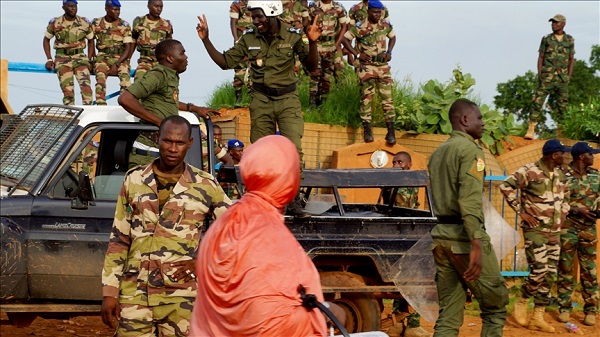
Security threats
Tourism and security threats are the strangest of bedfellows. These days, however, the handwriting on the wall is becoming bolder with respect to security and public safety.
Advertisement
The recent coup in Niger, followed by threats of military action to restore the deposed leader, creates a stir of uncertainty not only in that country but also in our regional neighbourhood.
Tourism does not like the uproar of insecurity, whether it comes in the form of robbery, coups, counter-coups or terrorism. The security threat hanging over our heads heightened when a private plane that carried key backers of the Niger coup crashed last Wednesday in Russia. All 10 members of the Wagner group including their warlord Yevgeny Prigozhin perished. The plot thickens, huh?
My point is when these insecurities are played out, tourism usually takes the first hit in terms of fallouts. At the time practitioners in the field are looking beyond our borders for new tourism business, these happenings are quite unsettling. To go down memory lane, not too long ago the tentacles of terrorism struck (not for the first time) in neighbouring Mali. A couple of weeks earlier it had been Burkina Faso. About a month before then it was Benin where tourists went missing and a tour guide was actually murdered.
Needless to say that these tragic incidents resulted in scores of people being massacred! Most of the victims were ordinary people. Reasons? Only the attackers could tell.
Like the French would say, ‘c’est dommage.’ The reality is that these attacks cannot be expected to remain francophone focused. The reality is that as sad as it is, these current attacks are not unexpected. This is because of a series of terrorists’ development across the globe including Boko Haram in neighbouring Nigeria.
Closer home, the arrest of Burkinabe refugees in Ghana harbouring arms is cause for concern. Add the recent spate of coup d'états in Guinea, Mali, Burkina Faso and Niger and you’d know that we cannot go to sleep on the matter.
For us in tourism, each time a gunshot goes off, our industry takes a blow. Beyond the coups, records show that terrorism is engendered in unstable regions. What makes these occurrences disingenuous is that Ghana is expecting heavy visitation owing to the “Beyond Year of Return.” The bulk of these visitors come from the United States, which cannot be said to be an uninterested party to the geo-politics.
Worldwide, the whole scourge is becoming a drill: terrorism strikes, tourism plummets and recovers.
Terrorism is by nature theatrical. The terrorist enjoys spectators. The bigger the audience, the better for their cause. That explains why the terrorist involves other people, usually innocent targets. In this regard, tourists are easy prey.
Apart from political and emotional unrest, terrorist attacks have always had a negative impact on businesses and entire regions. Terror groups have grown in strength and number. They have also changed the way that they attack nations. Their reach is also spreading.
Instead of targeting major financial or political institutions, terror groups are disrupting softer and easier targets such as beach resorts, (remember Tunisia?) airlines, subways, museums, hotels and other public places.
In Paris, the bombings were carried out in restaurants, a music concert and other public places. This led to a maximum loss of life. This could have a negative impact on travel and related industries.
Historically, markets recover slowly but steadily from terror attacks. However, countries experience a more pronounced political and economic setback. In the US 9/11 attack, GDP (gross domestic product) fell by almost half a per cent after the tragedy.
Terror attacks are designed to hamper economic activity by scaring people from visiting public places, shopping or taking vacations.
In tourism, the biggest losers from terrorist attacks are travel-related businesses such as online travel agencies, hotels and airlines. They lose on current bookings and suffer from lower travel demand to affected areas in the short term.
Of critical consideration is whether the terrorist is targeting a particular group of people or a particular destination. Neither answer is comforting. However, the sustained terrorist attacks would make tourists develop feelers that would make them attempt to determine which destinations are prone to attacks.
In effect, destinations that are perceived by tourists to be safe would begin to register increased arrivals. Incidentally, nearly all the continents have been visited by modern terrorism; Tanzania and Kenya in Africa, Indonesia in Asia, Spain in mainland Europe and of course America itself.
Truth is that Ghana remains one of the safest places in the world. Those who know, know. But we should not just be watching the news. What safety and security measures do we have at our major tourist sites, airports and hotels? On a grander scale, what is Ghana’s anti-terrorism preparedness level? This question becomes very relevant when we are seen as a leader in ECOWAS which is planning to apply military intervention in Niger. Let us pray.



